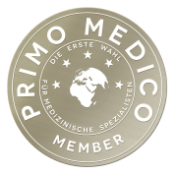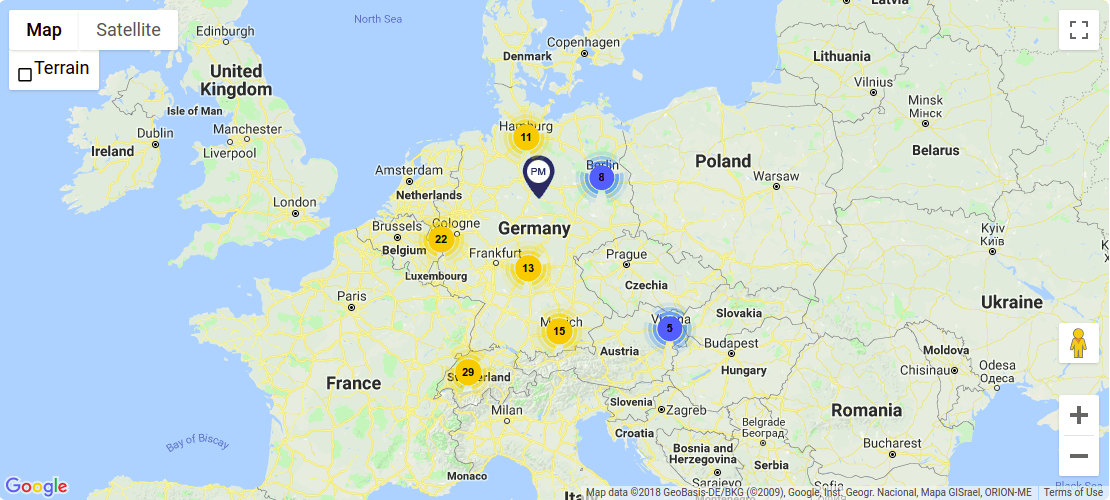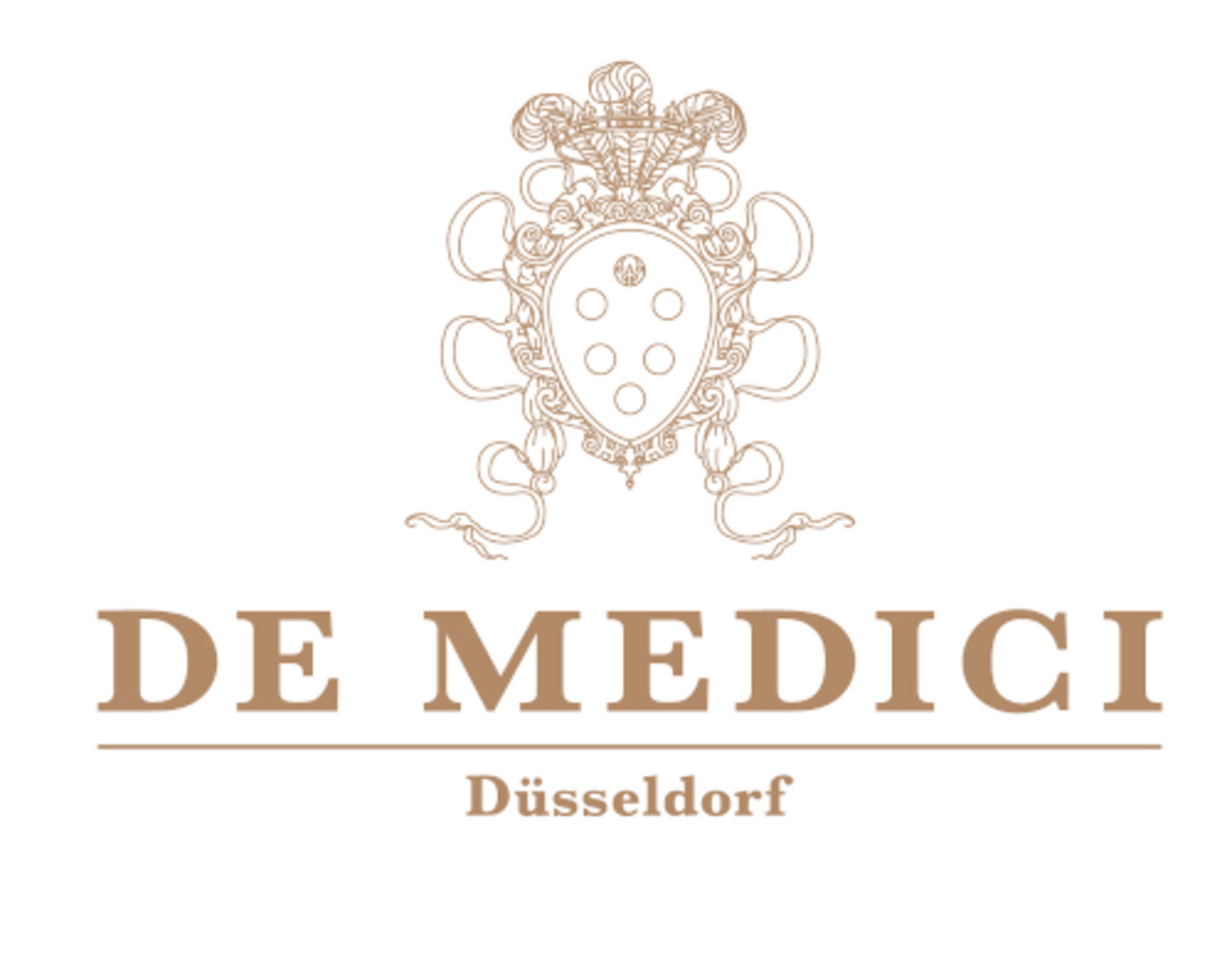Proton Therapy Essen - Prof. Timmermann WPE Essen
Treatment focus
- Brain tumors: meningioma, astrocytoma, glioma, glioblastoma, neuroblastoma, ependymoma, medulloblastoma, acoustic neuroma, pituitary adenoma, craniopharyngioma, etc.
- Bone and soft tissue tumours that are not displaced on inspiration (sarcomas): rhabdomyosarcoma, osteosarcoma, Ewing sarcoma, chondrosarcoma, chordoma, etc.
- Prostate carcinomas (especially intermediate and high risk)
- Advanced pelvic tumours with lymphatic drainage
- Advanced ENT tumours such as nasopharyngeal carcinomas (tumours in the nasopharyngeal cavity), carcinomas of the paranasal sinuses, aesthesioneuroblastoma, and salivary gland carcinoma
- Complex relapse situations
- Tumours in children younger than five years
- Eye tumors in adults and children
Contact
West German Proton Therapy Centre Essen (WPE)
Clinic for Particle Therapy - University Hospital Essen
Am Mühlenbach 1, D-45147 Essen
P: +49 201 7199 9022 F: +49 201 723 5254

Medical Range
Range of services
- Craniospinal axis treatment (CSA)
- Intensity-modulated proton therapy (IMPT)
- Simultaneous integrated boost (SIB)
- Pencil beam scanning method (PBS)
- Treatment in anaesthesia in young children
- Consultation regarding whether proton therapy is an option for certain types of tumours
- Preparation of reports and statements
- Information and support regarding the reimbursement of costs
- Scheduling of planning appointments before a series of irradiation (e.g. for consultation and production/application of exact positioning aids)
- Therapy planning with computed tomography (CT) and magnetic resonance Imaging (MRI)
- Development of precise irradiation plans in collaboration with attending medical physicists
- Monitoring of treatment with X-ray and surface detection systems alongside diagnostic devices.
- Since February 2012, the Counselling Centre for Paediatric Particle Therapy in the West German Proton Therapy Centre has been led by Dr Timmermann
- Participation in clinical studies
More Information
Card
Prof. Dr. med. Beate Timmermann is Director of the Clinic for Particle Therapy and Medical Director of the West German Proton Therapy Center (WPE). She is one of the world's leading specialists in the field of radiation therapy and radiooncology, especially in the field of proton therapy.
One of the Most Modern Proton Therapy Centers Worldwide
The West German Proton Therapy Center (WPE) is one of the leading facilities for radiation therapy with protons in Germany and the most modern proton therapy center worldwide. The WPE is characterized by a large team of excellent medical specialists, highly specialized medical physicists, experienced medical-technical radiology assistants (MTRA), and many other professionals. As a subsidiary of the University Hospital Essen and part of the largest oncological focus center, the West German Tumor Centre, it guarantees patients treatment at the highest medical level.
Proton Therapy Reduces Radiation Exposure
The irradiation of malignant tumors is a general procedure in modern medicine. In most cases, X-rays or photon beams are used to damage the tumor cells. Proton therapy is a modern and precise form of radiation therapy for the treatment of cancer, which is considered particularly gentle and effective due to its physical properties. The proton beam penetrates the healthy tissue up to the tumor and discharges its highest energy, not before it gets there. The radiation exposure of the healthy tissue is, therefore, many times lower with proton therapy than with other methods. Proton therapy can also be used to treat tumors in sensitive areas of the body that are difficult or impossible to operate on.
Treatment Focus on Brain Tumors & Sarcomas
The most significant clinical experience is in the treatment of chordomas and chondrosarcomas of the base of the skull as well as the axillary skeleton, tumors of the ocular fundus and, increasingly, solid tumors in childhood. Currently, the WPE is particularly treating non-displaced on inspiration tumors in the head, spine, and pelvis area (i.e., mainly primary brain tumors as well as sarcomas of the skull base, facial skull, spine, and pelvis). Prostate carcinomas and nasopharyngeal carcinomas are also considered.
Proton Radiation in Children
The treatment of children is a particular focus of the WPE. Also, the irradiation of younger children (under five years) is possible in the WPE. Unfortunately, children are particularly sensitive to the occurrence of radiation-related side effects due to the still developing tissue. But due to the well controllable impact of radiation therapy with protons, healthy tissue is primarily spared so that with protons, there is the potential to reduce the risk of negative therapy consequences and secondary tumors—Prof. Dr. med. Beate Timmermann has been working on the establishment of proton therapy for children since 2002.
Proton Therapy for the Treatment of Eye Tumors
Especially for treating patients with eye tumors, the Center for Proton Therapy, in cooperation with the Eye Clinic at the University Hospital Essen, offers the Eyeline Chair. Since proton therapy is very complex, it is only available for choroidal melanomas in a few places worldwide. However, with the possibility of using proton therapy for malignant eye tumors in both adults and children, the University Hospital Essen is home to one of the world's largest centers for eye tumors. Thus, outstanding oncological therapy is offered to all national and international patients of the Department of Ophthalmology.
Please, click here to visit the website of the WPE.
Team
- Dr Dirk Geismar MD
Senior Physician, Specialist for Radiotherapy - Dr Felicitas Guntrum MD
Senior Physician, Specialist for Radiotherapy - Melissa Christiaens
Senior Physician, Specialist for Radiotherapy - Dr Solveig Schulz MD
Senior Physician, Specialist for Radiotherapy - Dr Dirk Barbara Winckler-Saleske MD
Specialist for Radiotherapy - Dr Dalia Ahmad Khalil MD
Specialist for Radiotherapy - Dr Claudia Plass MD
Paediatrician, Haematologist/Oncologist - Dr Martina Stickan Verfürth MD
Physician - Sarah Peters
Physician
Extras
- Close cooperation with the clinics of the University Hospital of Essen
- Integral part of the West German Tumour Centre - WTZ
- Easy access with public or private transportation.
- Individualised support with respect to accommodation.
- Accommodation options for parents in parents’ house of Ronald McDonald House.
- Individualised support for reimbursement of costs for accommodation and possibly travel
- Vending machines in the centre
- Cafeteria approx. 200 m away
Transport Connections
| Essen Central Station | 4 km |
| Düsseldorf Central Station | 33 km |
| Düsseldorf Airport | 28 km |
Information about Essen
Essen is a city in the west of Germany, located in the middle of the Ruhr area. The fourth-largest city in the state of North Rhine-Westphalia is considered an important industrial and business location. Essen is located in the Rhine-Ruhr metropolitan region and was the European Capital of Culture in 2010.














